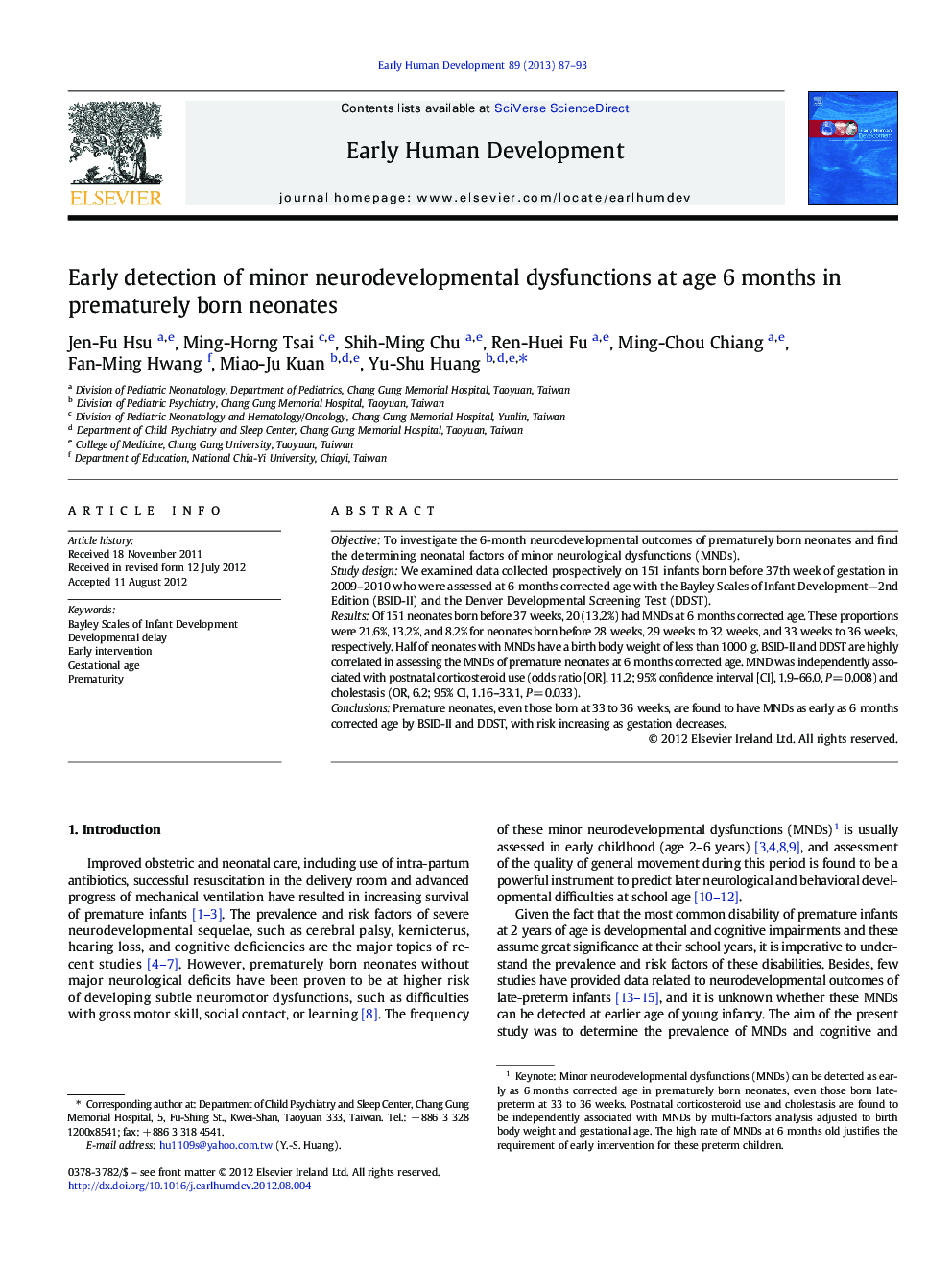| Article ID | Journal | Published Year | Pages | File Type |
|---|---|---|---|---|
| 3916736 | Early Human Development | 2013 | 7 Pages |
ObjectiveTo investigate the 6-month neurodevelopmental outcomes of prematurely born neonates and find the determining neonatal factors of minor neurological dysfunctions (MNDs).Study designWe examined data collected prospectively on 151 infants born before 37th week of gestation in 2009–2010 who were assessed at 6 months corrected age with the Bayley Scales of Infant Development—2nd Edition (BSID-II) and the Denver Developmental Screening Test (DDST).ResultsOf 151 neonates born before 37 weeks, 20 (13.2%) had MNDs at 6 months corrected age. These proportions were 21.6%, 13.2%, and 8.2% for neonates born before 28 weeks, 29 weeks to 32 weeks, and 33 weeks to 36 weeks, respectively. Half of neonates with MNDs have a birth body weight of less than 1000 g. BSID-II and DDST are highly correlated in assessing the MNDs of premature neonates at 6 months corrected age. MND was independently associated with postnatal corticosteroid use (odds ratio [OR], 11.2; 95% confidence interval [CI], 1.9–66.0, P = 0.008) and cholestasis (OR, 6.2; 95% CI, 1.16–33.1, P = 0.033).ConclusionsPremature neonates, even those born at 33 to 36 weeks, are found to have MNDs as early as 6 months corrected age by BSID-II and DDST, with risk increasing as gestation decreases.
